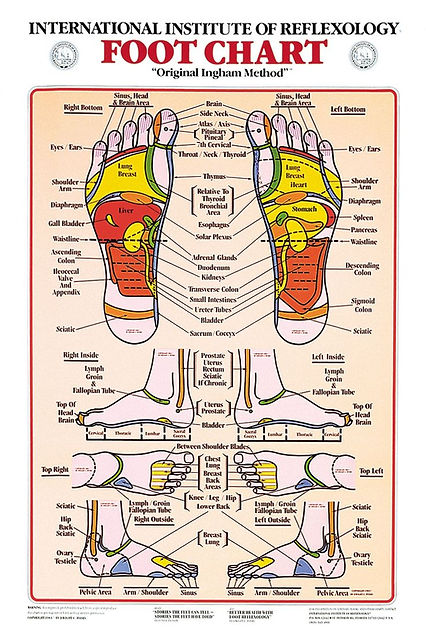Benefits:
-
Reflexology reduces stress and induces deep relaxation
-
It improves circulation
-
It improve elimination of toxins from the body via the excretory organs being the lungs, kidneys, skin and colon.
-
Reflexology revitalises energy which circulates consciously and unconsciously throughout the body on a physical, emotional and mental level.
-
reflexology is a preventative healthcare. This is becoming more important as we realise the health threatening dangers of our environment, stress, chemical additives in food, polluted water supplies, poor air qualities, radioactivity to name but a few.
-
Reflexology stimulates creativity and productivity by restoring mental alertness and improves self-esteem.
What happens when you go for a treatment?
On your first visit there is a preliminary talk with the practitioner. The reflexologist then begins work on your feet or hands if necessary, noting problem areas.
There may be slight discomfort in sore places, this is an indication of congestion or imbalance in a c corresponding part of the body.
For the most part, the sensation is pleasant and soothing. Reflexology will relax you while stimulating the body’s own mechanism.
A treatment session last for about an hour. A course treatment varies in length depending on your body’s needs. Your reflexologist will discuss this with you on your first session.

Everybody has the ability to heal itself. Following illness, stress, injury or disease, the body is in state of imbalance. Reflexology can be used to restore and maintain the body’s natural balance.
A trained reflexologist applies gentle hand pressure to specific areas. gTrained hands cab detect tiny deposits and tensions in the feet, which block vital energy pathways, resulting in illness, This promotes deep reflexology in the corresponding parts of the body and establishes the equilibrium necessary for normal healing power.
